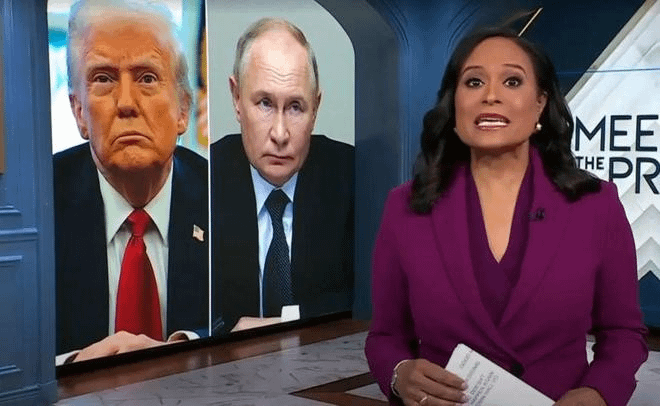The Ukraine war has once again captured global attention, but this time, the spotlight is on two key figures—former U.S. President Donald Trump and Russian President Vladimir Putin. Reports suggest that Trump, known for his tough stance, has expressed rare frustration toward Putin. Could this latest U.S.-Russia power play influence the course of Russia-Ukraine ceasefire talks?
1. Why Is Trump Angry at Putin? Stalled Ceasefire Negotiations
Since the Russia-Ukraine war began, ceasefire negotiations have repeatedly hit roadblocks. Just as peace seems within reach, new military offensives or political maneuvers reignite tensions. Recently, Putin publicly questioned the legitimacy of Ukrainian President Volodymyr Zelensky, even suggesting that the UN form an interim government. Many see this as a Russian tactic to delay peace talks rather than a genuine effort toward resolution.
Trump’s anger appears to stem from this. He has openly warned that if Putin continues obstructing negotiations, the U.S. may impose secondary sanctions on Russian oil, directly targeting Moscow’s economic lifeline. Could this hardline stance force Russia to reconsider its strategy?
2. Trump’s Sanction Threat: Can It Shift the Ukraine War?
Trump’s warning is not an empty threat. Russia’s economy heavily depends on energy exports, particularly oil and gas. If the U.S. and its allies tighten sanctions, it could severely strain Russia’s finances. However, this approach carries risks:
- Global energy markets could destabilize, driving up oil prices and impacting the world economy.
- Russia might escalate militarily, attempting to seize more territory before negotiations.
- Ukraine’s situation could grow more complex, rather than moving toward peace.
Still, analysts suggest Trump’s tough stance may push Putin to reassess the long-term costs of the Russia-Ukraine war. After all, prolonged high-intensity conflict is a heavy burden on Russia’s military and economy.
3. Latest Ukraine War Updates: Fighting Continues, Peace Talks Uncertain
Despite ongoing diplomatic discussions about a ceasefire deal, the battlefield remains active. Recently, Russian forces intensified airstrikes on cities like Kharkiv, while Ukrainian troops launched counteroffensives in some areas. Zelensky has repeatedly warned that Russia is using negotiations to consolidate occupied territories rather than pursue genuine peace.
4. What’s Next? When Will the Russia-Ukraine War End?
The war’s outcome hinges on several key factors:
✅ U.S.-Russia relations—Will Trump’s tough rhetoric translate into policy?
✅ Ukraine’s counteroffensive success—Can Ukrainian forces gain a decisive advantage?
✅ International pressure—Will the EU, China, and other major powers push harder for mediation?
In the short term, ceasefire talks may remain deadlocked, but Trump’s involvement could introduce a new variable.































